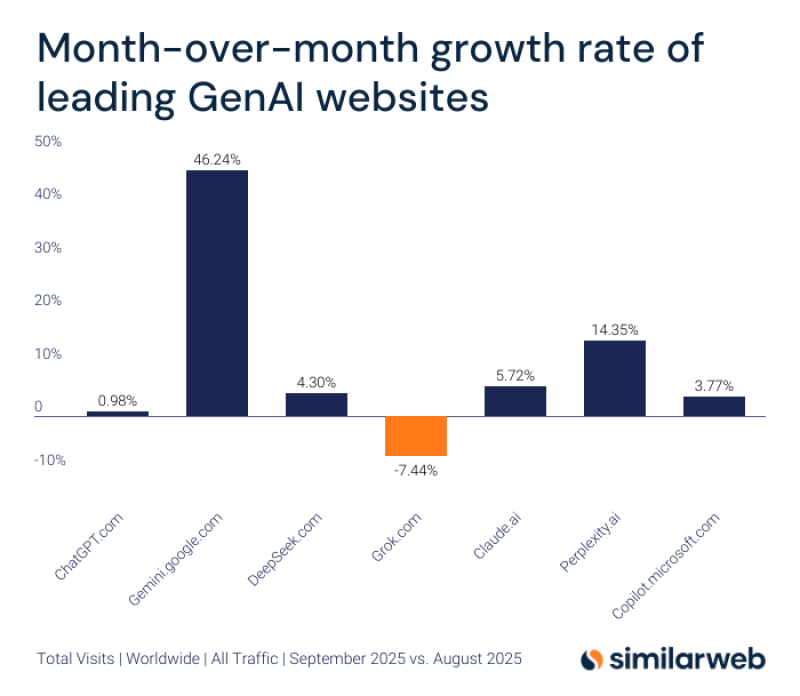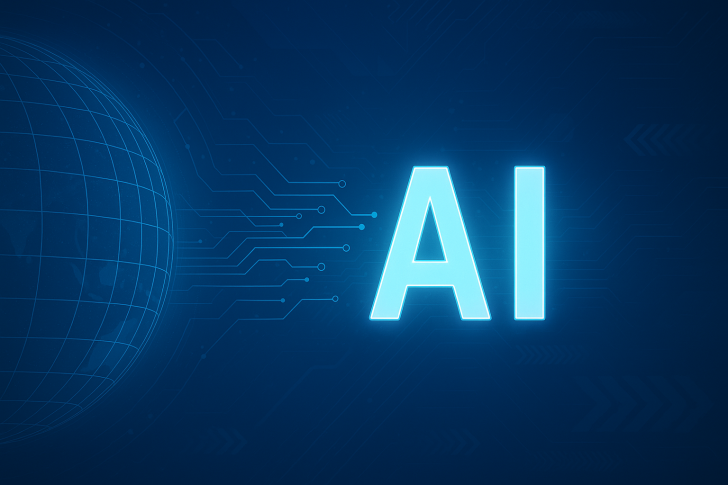Recent data reveals a dramatic shift in the generative AI landscape. Google's Gemini has emerged as the fastest-growing platform with impressive traffic gains, while Elon Musk's Grok struggles to maintain its footing. The September 2025 figures paint a clear picture of which AI platforms are winning user attention and which are losing ground.
Gemini Leads the Pack
Google's Gemini posted exceptional performance in September, according to Similarweb trader data, recording 46% month-over-month growth - more than triple the rate of its nearest competitor. The platform's integration across Google's ecosystem, including Workspace and mobile search, has given it access to a massive built-in user base.

This strategic positioning is paying off with adoption rates that far exceed industry expectations.
September 2025 GenAI Traffic Growth:
- Gemini: +46.24%
- Perplexity: +14.35%
- Claude: +5.72%
- DeepSeek: +4.30%
- Microsoft Copilot: +3.77%
- ChatGPT: +0.98%
- Grok: -7.44%
Perplexity's 14% growth solidifies its position as a credible alternative to traditional search engines, while Claude and DeepSeek show healthy gains. DeepSeek's 4.3% increase marks its first growth since February. Microsoft Copilot added nearly 4%, and ChatGPT managed just under 1% growth. Grok was the only platform in negative territory, dropping 7.4%.
Grok's Unexpected Decline
The most surprising result came from Grok, which fell 7.44% despite its high-profile backing and integration with X. The decline suggests that visibility alone isn't enough to drive sustained growth. Without the ecosystem reach that Google or OpenAI enjoy, Grok appears to be hitting a ceiling. The platform's limited distribution channels may be hampering its ability to compete with rivals that have deeper hooks into users' daily workflows.
ChatGPT and Copilot Hold Steady
OpenAI's ChatGPT, while still dominant, showed signs of maturation with less than 1% growth. As competition heats up, maintaining market share is becoming harder even for the category leader. Microsoft's Copilot performed better at nearly 4%, benefiting from its tight integration with Office products. The steady but unremarkable growth reflects a platform that's growing through existing channels rather than breaking new ground.
What This Means for the AI Industry
The September rankings reveal three key patterns. First, Google is flexing its distribution muscle, using Gemini to reclaim ground in the AI race. Second, niche players like Perplexity and DeepSeek are finding their footing by targeting specific use cases - search alternatives and enterprise solutions respectively. Third, ecosystem access is proving decisive. Platforms embedded in widely used products are outperforming those that rely on standalone appeal, no matter how much buzz they generate.
 Peter Smith
Peter Smith

 Peter Smith
Peter Smith


